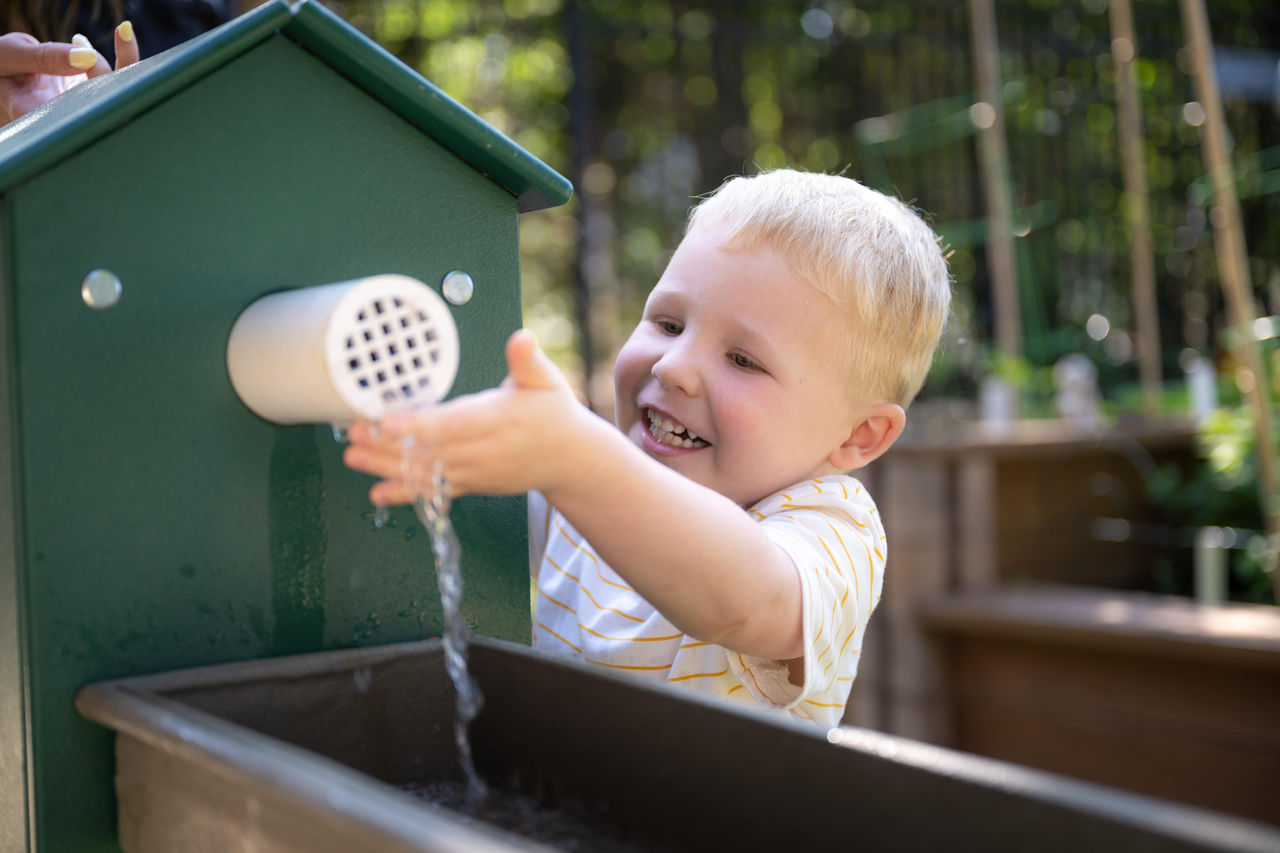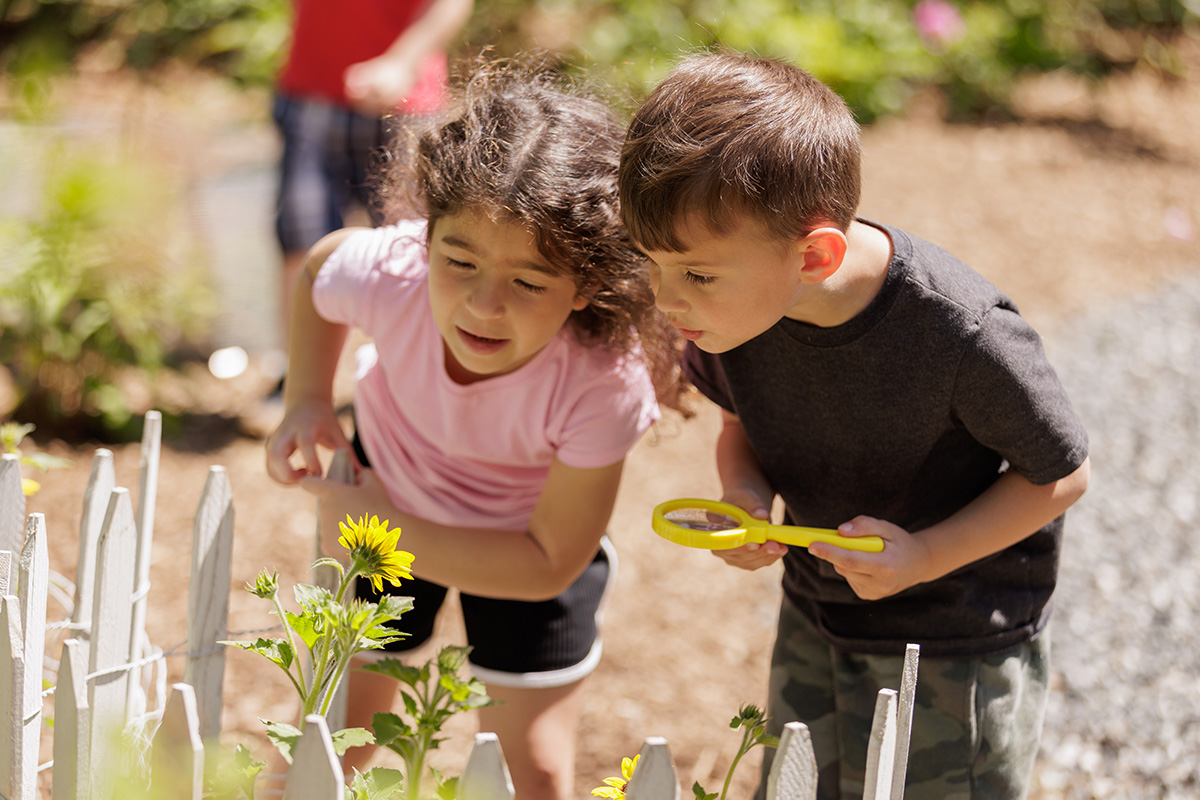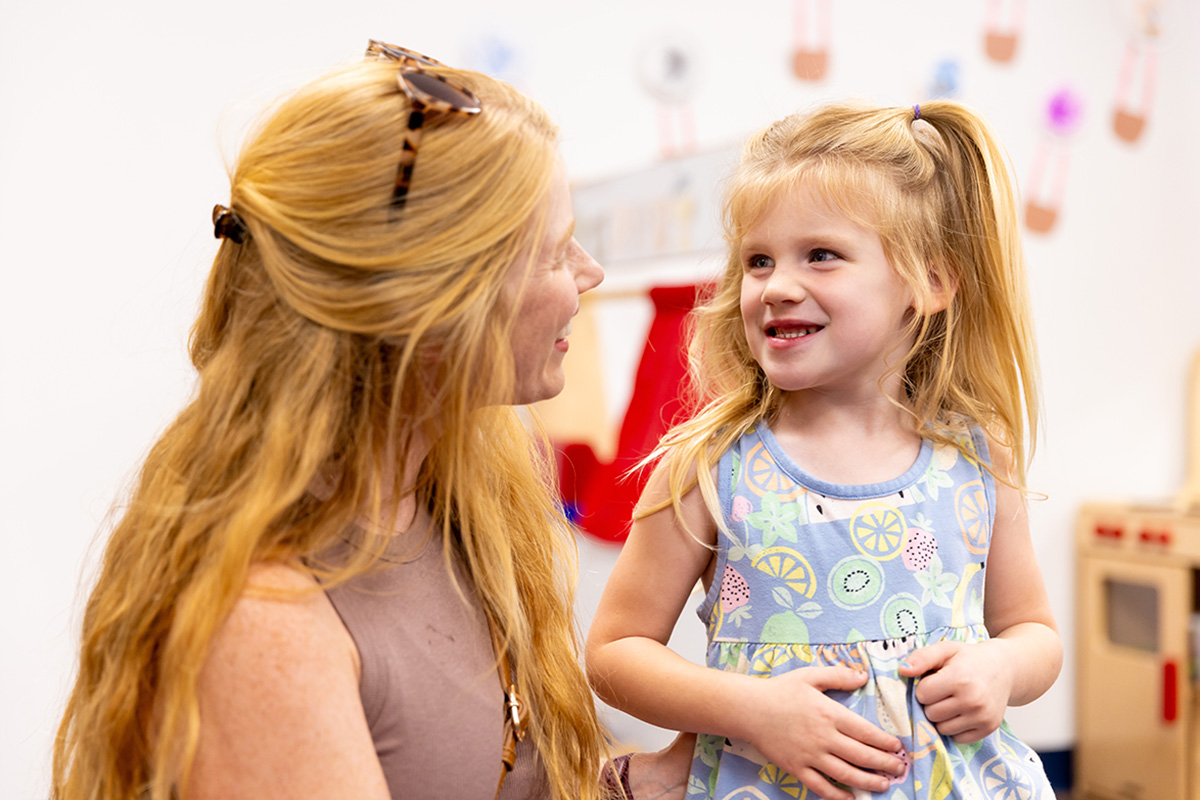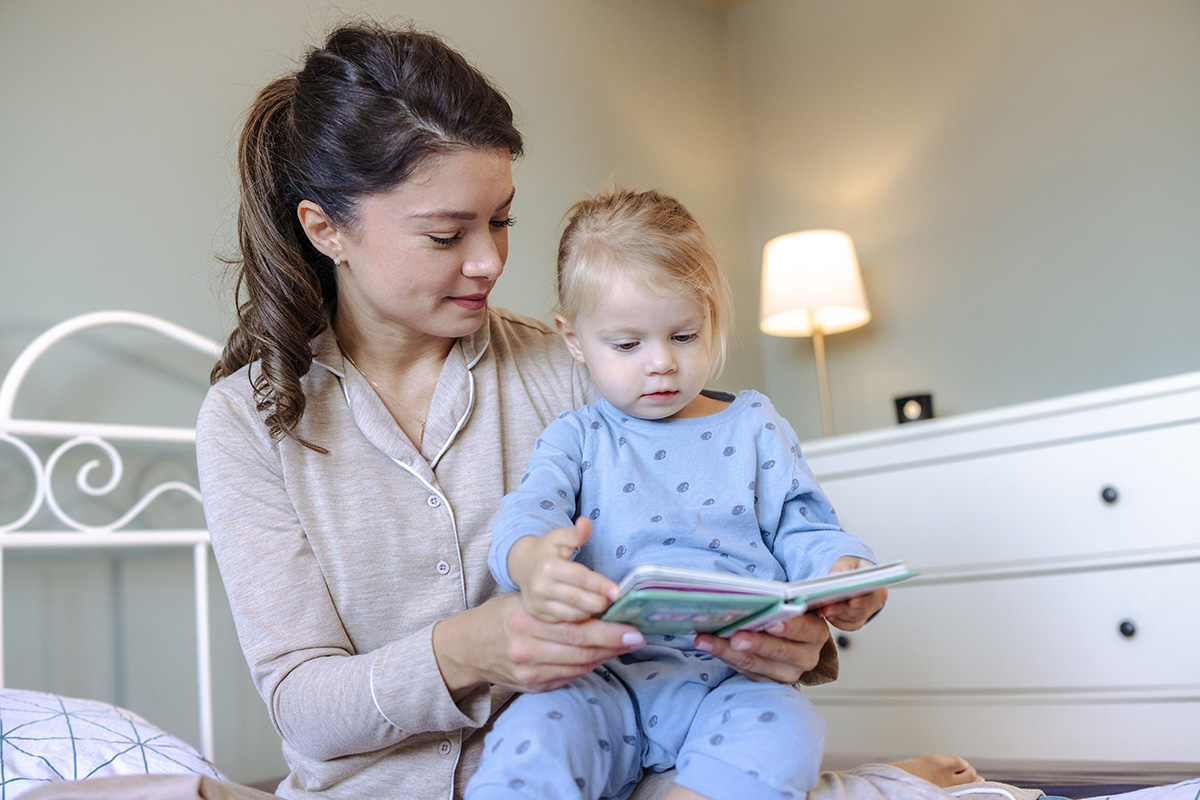In part one of this blog series, Dr. Shaheen shared how Goddard and our proprietary education program, Wonder of Learning™, supports children throughout their crucial first five years. In part two, she provides ideas for families to supplement the premium experience you can expect from Goddard in the comfort of your own home.
Building Key Language Skills During Daily Activities
Did you know that your baby started learning language before they were even born (Romeo et al., 2018)? The early language experiences you have with your child will shape their future verbal and reading skills, so focus on conversational exchanges between you and your child many times each day:
- Read books (and talk about them with your child).
- Insert conversation into your daily activities (car rides to school, at the grocery store, etc.).
- Introduce new vocabulary regularly (at the grocery store, introduce new food items. You can say something like: “That is a tangelo. It’s a mix between a mandarin orange and a tangerine. What do you notice about it?”).
- Sing together (encourage your child to sing along with you).
- Respond to your baby’s coos and babbles as if they are real conversations (because they are real conversations for your baby!).
- Create a loving and interactive environment where your baby feels safe to explore and communicate.
- Engage your child in as many experiences as possible and talk about everything (this builds the background knowledge and vocabulary necessary to support reading comprehension).
- Create space for your child’s verbal responses (cooing, babbling and talking). Remember — talking to your child is not the goal, talking with your child is what helps form those neural connections in the brain!
Your baby’s brain is like a sponge, absorbing everything around them. By providing a nurturing, language-rich environment, you are setting the stage for a lifetime of learning! Strong language interactions early on have been linked to better reading abilities later in life, so ensure that your child’s early childhood education program focuses on open-ended, child-centered curriculum designed to engage children in conversation and higher-level vocabulary each day.
Mathematical and Cognitive Development
Engaging your child in counting, pattern recognition and problem-solving from a young age strengthens critical thinking and executive function skills (Early Learning Matters, 2021). The Wonder of Learning curriculum engages your child in mathematics through real-world, hands-on activities each day. For example, while engaged in question about how things move, your child might measure the distance the vehicle they designed travels across the floor, count the number of cars that traveled specific distances and create a simple graph to show how far each one traveled. Supporting early mathematical concepts at home is easily done within the daily activities you already do with your child:
- Ask your child to help at the grocery store. “Can you please grab five of those oranges for me?” or “We have to be done shopping in 45 minutes, so let’s keep looking at the clock to make sure we finish in time.”
- Notice patterns in clothing while doing the laundry, sort into groups and count Invite your child to help measure ingredients, count scoops of flour or compare sizes of measuring cups while cooking. Ask questions like, “Which measuring cup holds more?”
- Clap, stomp or tap out patterns with your child and ask them to repeat or make their own while listening to music.the number of items each person has in their laundry pile.
Physical Development
Fine motor skills (like buttoning a shirt or writing) use small muscle groups for precise movement. Large motor skills (like running or jumping) use large muscle groups for larger movements. At The Goddard School, we work to help students develop both fine and gross motor skills through play and other activities, supporting their physical health while building confidence and self-esteem. Young children are active and learn best when engaged in activities that support both large and small motor skills. It’s easy to add motor skill activities for your child to your daily chores:
- Play games with simple chores such as scattering the laundry around the room and encouraging your child to see how many items they can quickly run and put into the basket within one minute.
- While running errands, encourage your child to do various large motor activities while waiting in line (examples: Stretch as high as you can like a giraffe, squat as low as you can but don’t touch the ground, lift your knees high as many times as you can in a minute, etc.). At home, you can take this further by asking them to different animal walks (hop like a frog or crawl like a bear) or setting up an obstacle course.
- Bring in fine motor tasks like a pre-printed grocery list with photos of each item next to the words and encourage your child to cross off each item as you add each to the cart.
References
Early Learning Matters. (2021). ELM Curriculum User Guide: 3-5 Years. Purdue University.
First Five Years Key Concepts. (2021). Critical periods for brain development. Harvard Center on the Developing Child.
Harvard Center on the Developing Child. (2021). Brain architecture and early childhood development. Retrieved from https://developingchild.harvard.edu HCDC. (2021). Place matters: The environment we create shapes the foundations of healthy development. Harvard University.
Kuhl, P. K. (2011). Early language learning and literacy: Neuroscience implications for education. Mind, Brain, and Education, 5(3), 128-142.
Romeo, R. R., Leonard, J. A., Robinson, S. T., West, M. R., Mackey, A. P., Rowe, M. L., & Gabrieli, J. D. E. (2018). Beyond the 30-million-word gap: Children’s conversational exposure is associated with language-related brain function. Psychological Science, 29(5), 700-710.
Shonkoff, J. P., & Phillips, D. A. (2000). From neurons to neighborhoods: The science of early childhood development. National Academy Press.
Wasserman, L. H., & Zambo, D. (2013). Early childhood and neuroscience: Links to development and learning. Springer.




